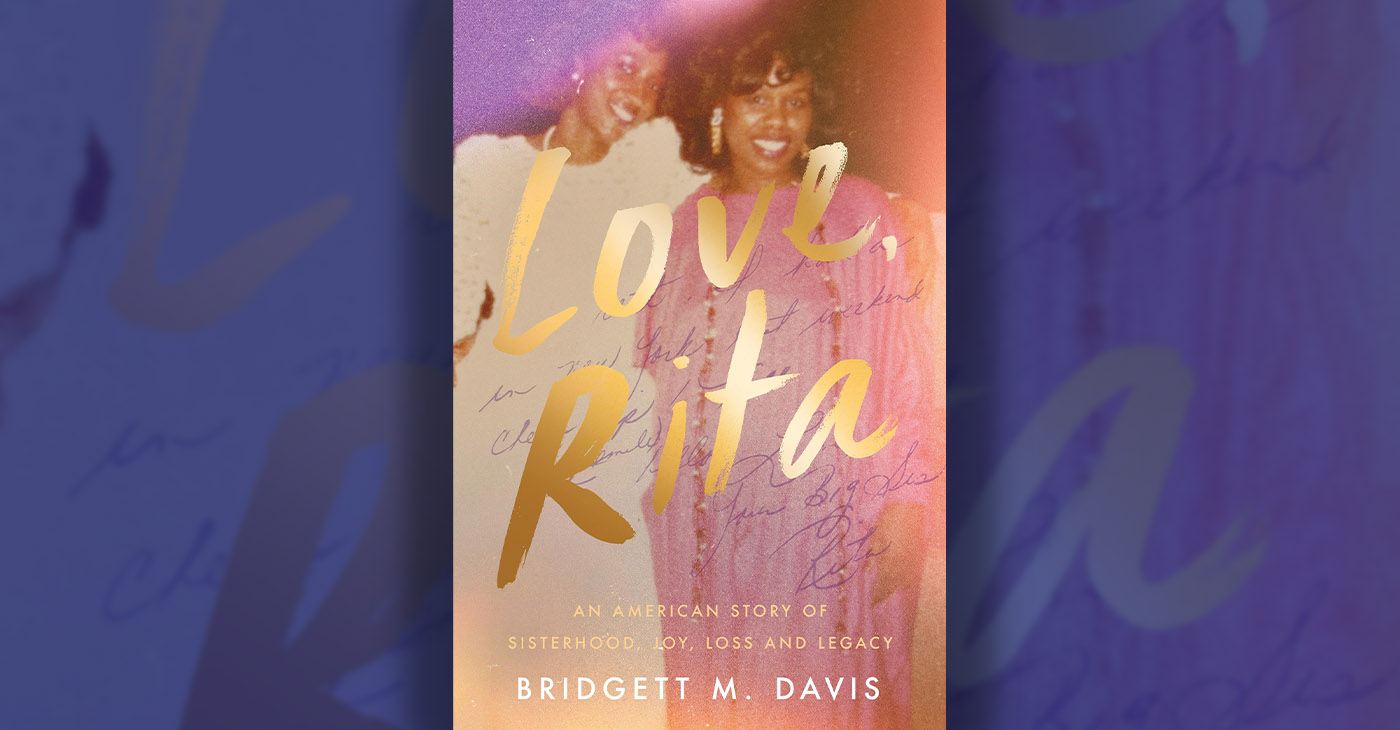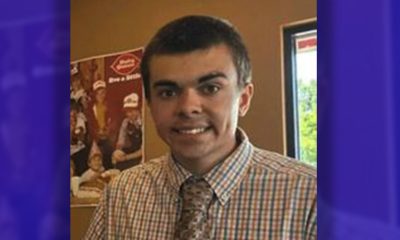Opinion
OP-ED: Cease the Hostilities
By Richard Johnson, Folsom State Prison
When we ponder the age-old question of whether we can all get along, it is still a dilemma because not much has changed in regards to social relationships between people of diverse cultures, beliefs and religions.
These differences often seem to escalate into physical conflicts.
Several years ago in Pelican Bay State prison, different prisoners, so-called gang members of distinguishable nationalities and opinions, came together in an expression of hope to stop the violence not only behind the walls but also outside the walls.
This in itself was a historical monumental event, given the history of violence that has plagued prisons, especially in California.
These brave men who rallied together to halt the violence did so because they came to realize that fighting each other only plays into a pattern of bloody carnage.
These men also finally made the connection that the violence that existed inside reflected the violence outside as well, and it must immediately stop.
The fact that all these men at various times were directly or indirectly involved in violence undoubtedly allowed them to have a discourse on the subject from a position of first- hand knowledge.
They understood that civility must begin somewhere, so why not begin at the heart of the violence to create a better environment for everyone, both inside and out.
They diligently put themselves out there, desperately going against the paradigm that has prevailed for decades, that being the premise that violence was the only way.
Some prison administrators balked at their decision to unify and dismissed it as some gimmick with an ulterior agenda. This reaction was to be anticipated because they often exploit the differences and chaos in prison so they can control the inmates by pitting one faction against the other, keeping the flames of antagonism, hatred and hostility burning.
These same attitudes are being played out in the neighborhoods with similar mindsets on the same ongoing disputes that are played out in prison.
Instead of applauding the efforts of these brave inmates who banded together to halt hostilities, they were dismissed as troublemakers.
Acting as a devil’s advocate, I can see the prison bureaucrats’ point of view, because stopping the violence upsets the mainstay of prison hegemony (violence).
Stopping violence curbs the cash flow from their backers on the money chain.
However, the prisoners can’t do it by themselves. They need community support in order to exact real substantive change. The churches, community services, politicians and everyday people must get involved so that failure won’t be an option.
We need to contact community leaders to let them know that you embrace and support them wholeheartedly.
Don’t allow those who dictate the terms of prison affairs to continue to articulate and promote prison dissension as in the past. It’s a brand new day with new updated thinking, and progressive action.
The future belongs to those committed to making it happen, not to those who choose to sit on the fence remaining silent to the future.
If it can happen inside, why can’t it be done outside?
Activism
Oakland Post: Week of April 30 – May 6, 2025
The printed Weekly Edition of the Oakland Post: Week of April 30 – May 6, 2025

To enlarge your view of this issue, use the slider, magnifying glass icon or full page icon in the lower right corner of the browser window.
Arts and Culture
BOOK REVIEW: Love, Rita: An American Story of Sisterhood, Joy, Loss, and Legacy
When Bridgett M. Davis was in college, her sister Rita was diagnosed with lupus, a disease of the immune system that often left her constantly tired and sore. Davis was a bit unfazed, but sympathetic to Rita’s suffering and also annoyed that the disease sometimes came between them. By that time, they needed one another more than ever.

By Terri Schlichenmeyer
Author: Bridgett M. Davis, c.2025, Harper, $29.99, 367 Pages
Take care.
Do it because you want to stay well, upright, and away from illness. Eat right, swallow your vitamins and hydrate, keep good habits and hygiene, and cross your fingers. Take care as much as you can because, as in the new book, “Love, Rita” by Bridgett M. Davis, your well-being is sometimes out of your hands.
It was a family story told often: when Davis was born, her sister, Rita, then four years old, stormed up to her crying newborn sibling and said, ‘Shut your … mouth!’
Rita, says Davis, didn’t want a little sister then. She already had two big sisters and a neighbor who was somewhat of a “sister,” and this baby was an irritation. As Davis grew, the feeling was mutual, although she always knew that Rita loved her.
Over the years, the sisters tried many times not to fight — on their own and at the urging of their mother — and though division was ever present, it eased when Rita went to college. Davis was still in high school then, and she admired her big sister.
She eagerly devoured frequent letters sent to her in the mail, signed, “Love, Rita.”
When Davis was in college herself, Rita was diagnosed with lupus, a disease of the immune system that often left her constantly tired and sore. Davis was a bit unfazed, but sympathetic to Rita’s suffering and also annoyed that the disease sometimes came between them. By that time, they needed one another more than ever.
First, they lost their father. Drugs then invaded the family and addiction stole two siblings. A sister and a young nephew were murdered in a domestic violence incident. Their mother was devastated; Rita’s lupus was an “added weight of her sorrow.”
After their mother died of colon cancer, Rita’s lupus took a turn for the worse.
“Did she even stand a chance?” Davis wrote in her journal.
“It just didn’t seem possible that she, someone so full of life, could die.”
Let’s start here: once you get past the prologue in “Love, Rita,” you may lose interest. Maybe.
Most of the stories that author Bridgett M. Davis shares are mildly interesting, nothing rare, mostly commonplace tales of growing up in the 1960s and ’70s with a sibling. There are a lot of these kinds of stories, and they tend to generally melt together. After about fifty pages of them, you might start to think about putting the book aside.
But don’t. Not quite yet.
In between those everyday tales, Davis occasionally writes about being an ailing Black woman in America, the incorrect assumptions made by doctors, the history of medical treatment for Black people (women in particular), attitudes, and mythologies. Those passages are now and then, interspersed, but worth scanning for.
This book is perhaps best for anyone with the patience for a slow-paced memoir, or anyone who loves a Black woman who’s ill or might be ill someday. If that’s you and you can read between the lines, then “Love, Rita” is a book to take in carefully.
Activism
Faces Around the Bay: Author Karen Lewis Took the ‘Detour to Straight Street’
“My life has been a roller-coaster with an unlimited ride wristband! I was raised in Berkeley during the time of Ron Dellums, the Black Panthers, and People’s Park. I was a Hippie kid, my Auntie cut off all our hair so we could wear the natural styles like her and Angela Davis.

By Barbara Fluhrer
I met Karen Lewis on a park bench in Berkeley. She wrote her story on the spot.
“My life has been a roller-coaster with an unlimited ride wristband! I was raised in Berkeley during the time of Ron Dellums, the Black Panthers, and People’s Park. I was a Hippie kid, my Auntie cut off all our hair so we could wear the natural styles like her and Angela Davis.
I got married young, then ended up getting divorced, raising two boys into men. After my divorce, I had a stroke that left me blind and paralyzed. I was homeless, lost in a fog with blurred vision.
Jesus healed me! I now have two beautiful grandkids. At 61, this age and this stage, I am finally free indeed. Our Lord Jesus Christ saved my soul. I now know how to be still. I lay at his feet. I surrender and just rest. My life and every step on my path have already been ordered. So, I have learned in this life…it’s nice to be nice. No stressing, just blessings. Pray for the best and deal with the rest.
Nobody is perfect, so forgive quickly and love easily!”
Lewis’ book “Detour to Straight Street” is available on Amazon.
-

 Activism3 weeks ago
Activism3 weeks agoOakland Post: Week of April 9 – 15, 2025
-

 #NNPA BlackPress4 weeks ago
#NNPA BlackPress4 weeks agoTrump Profits, Black America Pays the Price
-

 Activism2 weeks ago
Activism2 weeks agoOakland Post: Week of April 16 – 22, 2025
-

 Activism1 week ago
Activism1 week agoAI Is Reshaping Black Healthcare: Promise, Peril, and the Push for Improved Results in California
-

 Activism1 week ago
Activism1 week agoBarbara Lee Accepts Victory With “Responsibility, Humility and Love”
-

 #NNPA BlackPress4 weeks ago
#NNPA BlackPress4 weeks agoHarriet Tubman Scrubbed; DEI Dismantled
-

 #NNPA BlackPress4 weeks ago
#NNPA BlackPress4 weeks agoTrump Targets a Slavery Removal from the National Museum of African-American History and Culture
-

 Activism1 week ago
Activism1 week agoNewsom Fights Back as AmeriCorps Shutdown Threatens Vital Services in Black Communities























































